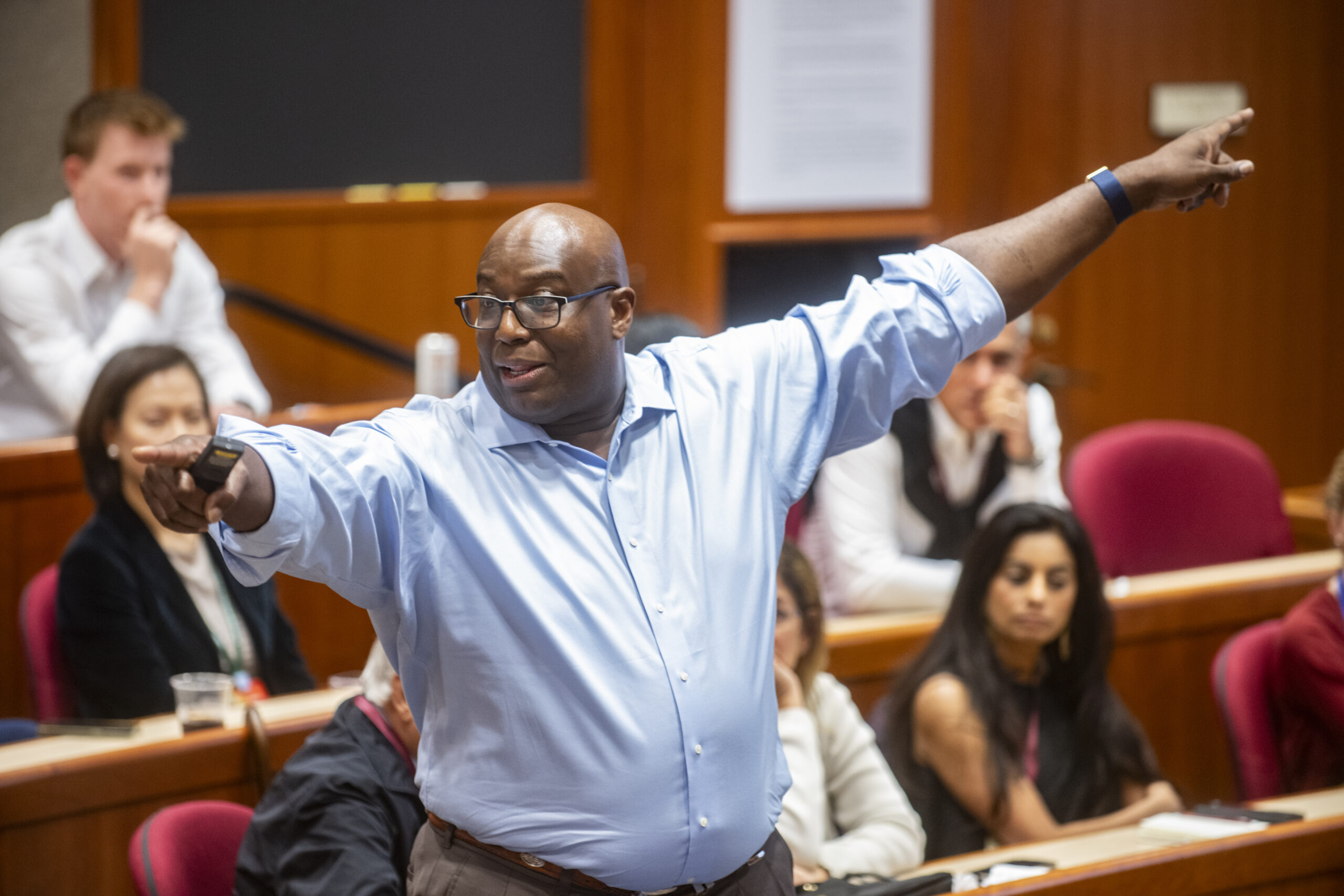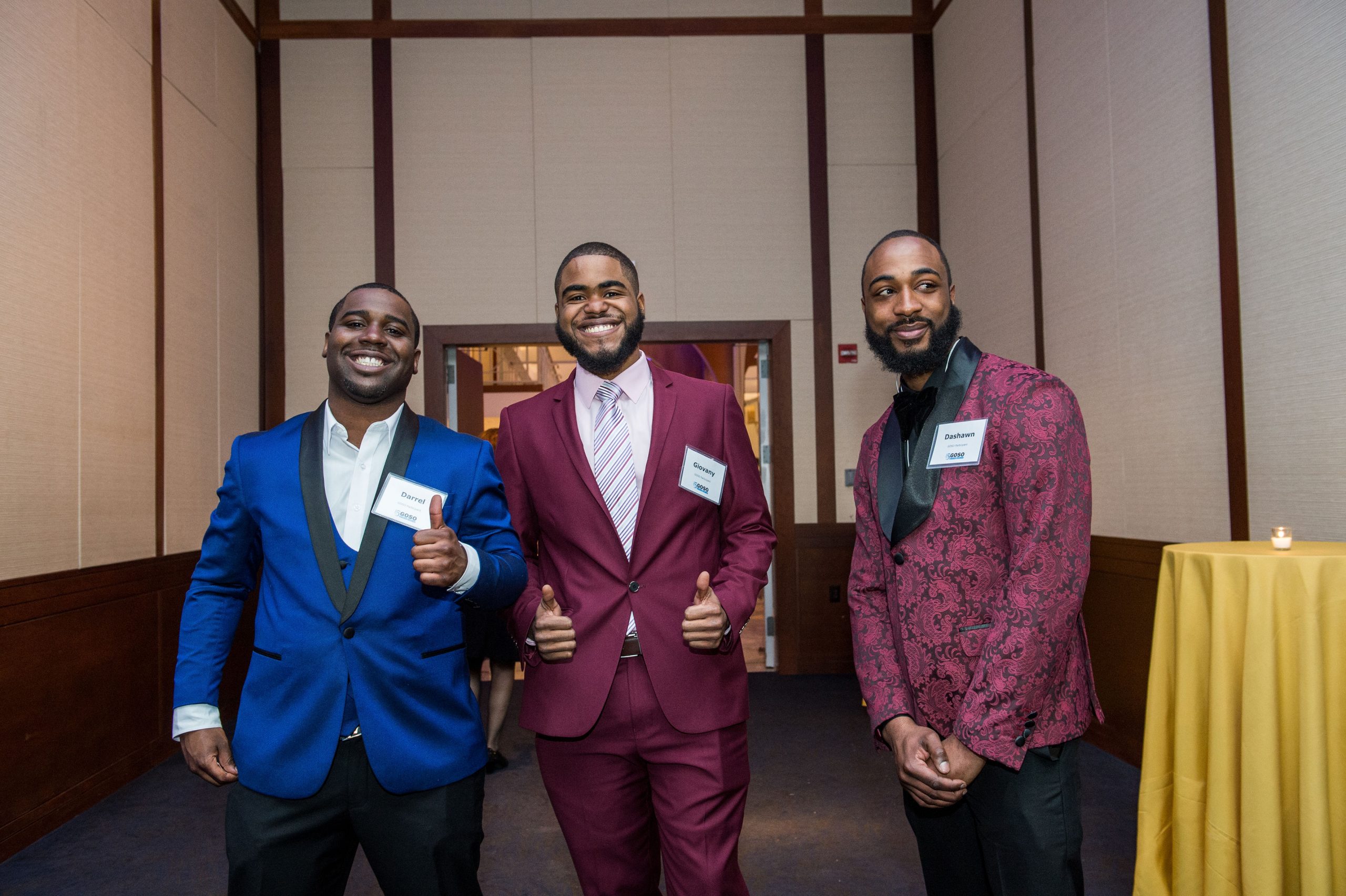

HBS alumni partnered with a NYC nonprofit to address problems of mass incarceration and institutionalized racism—and the results are inspiring.
Through the Community Partners division of the Harvard Business School Club of New York (HBSCNY), a team of seven alumni volunteers completed a pro bono consulting project with Getting Out and Staying Out (GOSO), a nonprofit providing reentry services to young men, ages 16 to 24, who are currently detained at or were released from Rikers Island and other detention centers.
The HBSCNY Community Partners division provides over $3M in pro bono consulting services to nonprofit organizations in the greater New York City area annually. HBS alumni volunteers on the GOSO project included Charley Beever (MBA 1978), Lauren Marrus (MBA 1987), Pratik Patel (PLDA 2014), Efrem Sigel (MBA 1968), Peter Siris (MBA 1968), Fatim Thiam (MBA 1996), and Iliya Zogovic (OPM 45).
Efrem Sigel initiated the project because of his interest in how educational disparities and the criminal justice system affect young people in East Harlem.“I heard about Getting Out and Staying Out through a presentation they gave at a police precinct community meeting,” Sigel said. “I thought, this is an organization that’s doing really important work. Maybe we can help them. So I reached out to them immediately.” Once GOSO applied to Community Partners and was selected, Sigel quickly signed on as the project’s co-coordinator.
For organizations like GOSO, the challenges in providing reentry planning and post-release transitional services for the young men of Rikers are large and complex.
Rikers Island has been described as “a microcosm of everything wrong with America’s criminal justice system.”1 Not only are impoverished people and people of color more likely to land at Rikers, the institution’s culture of violence, substance abuse, and mental health issues compounds the system’s inequities and causes severe trauma for those who find themselves caught in its grip.
“When our program participants come in, we tell them, ‘You've been affected by systems including racism, marginalization, and the criminalization of poverty,’” said GOSO’s Associate Executive Directive, Geoffrey Golia.
“The young men we work with are survivors of broken systems, whether those are individual family systems, foster care systems, or educational systems where they're tracked into remedial education or where there's a school-to-prison pipeline,” said GOSO’s Associate Executive Directive, Geoffrey Golia. “Even before Rikers, they’re already emerging from a lot of challenges; but our participants have just as much aptitude, intelligence, determination, and grit as anyone else. It’s just a matter of giving them opportunities to compete.”
Through the project, HBS alumni helped GOSO identify solutions to management challenges including building infrastructure that is responsive to NYC’s new supervised release program and how to approach scaling GOSO’s model geographically.
GOSO’s leadership and board of directors were thrilled with the project’s results. "On behalf of the entire team, we could not be more pleased with the work the HBSCNY conducted on GOSO’s behalf,” said Golia. “Each team member brought wisdom, expertise, and passion to the project, and really took the time to understand our team, our model, and the needs and aspirations of our participants. After a thoughtful assessment of our program, partners, and participants, the HBSCNY team developed a thorough plan that has already helped us shape the direction and growth of our agency.”
The project also benefitted the volunteers. “Not only did we help the organization, but the learning, understanding, and broadened perspective that each team member gained was tremendous,” said Charley Beever, project co-coordinator. “This was one of those wonderful experiences that paid dividends to all parties involved.”
The enthusiasm for the project culminated at the final presentation, which was well-attended by GOSO’s board. “We got so involved in GOSO’s internal workings, personalities, and views of key staff, that we were able to inform board members of issues that they may not have been exposed to otherwise,” said Efrem Sigel. “It was a great windup to a successful project.”
Learn more about the HBS Club of New York Community Partners program here.
1 Darren Walker, "Lessons From Rikers Island," The Atlantic, May 09, 2017.